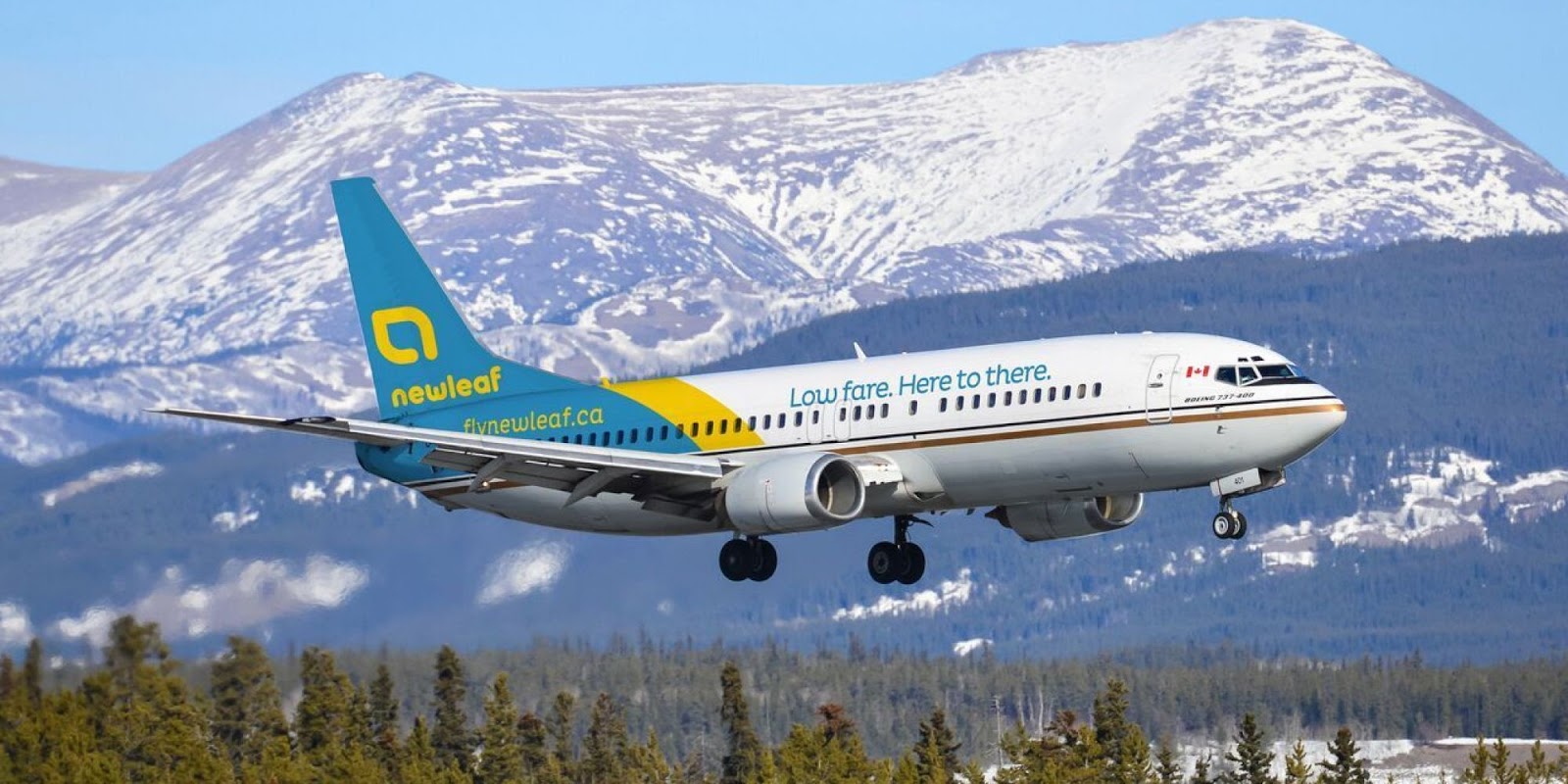NewLeaf will be taking off in Canada next month, making its maiden voyage on Feb. 12. The route offerings will be modest at first. NewLeaf plans to serve seven destinations at the start: Abbotsford and Kelowna (both in British Columbia), Regina, Saskatoon, Winnipeg, Hamilton and Halifax.
Passing savings on to fliers
The fledgling carrier’s CEO, Jim Young, said that the focus on secondary airports and smaller destinations is part of NewLeaf’s strategy. He told potential passengers that “lower landing fees [at smaller airports] mean we have savings we can pass on to you.”
Those savings include one-way fares as low as $89, while the highest initial fare will be $149. These prices include taxes. NewLeaf hopes to expand to U.S. vacation destinations later in the year. That is actually not a big stretch because its partner is B.C.-based charter airline Flair, which sometimes serves vacation destinations in the U.S. and Caribbean.
A challenging start
Based in Winnipeg, NewLeaf will be entering a very tough marketplace that recently claimed another small carrier, CanJet. The Nova Scotia-based line was forced to close last year, leaving WestJet and Air Canada as the only two major airlines in the country. They are tough to compete with because of their size, but they leave some markets underserved. There is definitely a gap in the ultra-budget marketplace, and NewLeaf’s goal seems to be to fill it.
Darcy Morgan, the CCO of another Canadian charter service, Enerjet, pointed the gap out to the CBC in a recent interview: “Canada is not well-served by airlines today, and as much as there’s a duopoly of Air Canada and WestJet, Canada lacks the low-cost point-to-point service pretty much every nation has available.”
The low fares and underserved markets (and a new alternative to the current Big Two) certainly sound good. However, there is another reason that NewLeaf can afford offer low prices. It will operate under the same kind of model as ultra-budget airlines in other countries.
Low fares, but plenty of extra fees
That means that the base fares will be low, but anything extra will cost more. “Anything extra” includes early boarding, checked baggage, snacks, drinks and even carry-ons. Both checked bags and carry-ons will cost $25 each. Any luggage that can fit under the seat is free. CanJet was unable to make a similar model work in recent times, so success is certainly not guaranteed.
WestJet, which bills itself as a low-cost carrier, has said that it “will vigorously defend [its] position in the market.” Air Canada, meanwhile, has touted its extensive reach as the reason why it should be the number one choice for domestic fliers.
Steele Luxury Travel
www.SteeleTravel.com

